Table Of Content
- Unlocking Government Schemes Grants Indian Startups: Your Strategic Funding Roadmap
- Understanding Government Schemes for Indian Startups: The Policy Evolution
- Central Government Schemes for Indian Startups: The Complete Framework
- 1. Startup India SEED Fund Scheme: Foundation Funding Excellence
- 2. NIDHI-PRAYAS: Technology Development Support
- 3. BIRAC Schemes: Biotechnology Innovation Support
- 4. NSTEDB Programs: Science and Technology Entrepreneurship
- 5. MSME Schemes Applicable to Startups
- State Government Schemes Grants Indian Startups: Regional Opportunities
- Karnataka State Programs
- Maharashtra Startup Ecosystem
- Tamil Nadu Startup Support
- Telangana State Programs
- Gujarat Startup Ecosystem
- Sector-Specific Government Schemes Grants Indian Startups
- Agriculture and Food Processing
- Defense and Aerospace
- Healthcare and Medical Devices
- Clean Energy and Environment
- Application Strategies: Insights from NITI Aayog Mentoring
- Documentation Excellence
- Timeline Management
- Common Application Mistakes
- Maximizing Success: Advanced Strategies
- Portfolio Approach to Government Schemes Grants Indian Startups
- Timing Optimization
- Networking and Mentorship Leverage
- Regional Insights: State-Wise Opportunities
- Northern States Focus
- Southern States Advantages
- Western Region Opportunities
- Eastern Region Potential
- Compliance and Reporting: Ensuring Long-term Success
- Grant Utilization Best Practices
- Intellectual Property Considerations
- Scaling Beyond Initial Grants
- Measuring Impact: Success Metrics and Evaluation
- Quantitative Success Indicators
- Qualitative Impact Assessment
- Future Outlook: Emerging Trends in Government Schemes Grants Indian Startups
- Technology Focus Evolution
- Policy Integration Opportunities
- Your Action Plan: Navigating Government Schemes Grants Indian Startups
- Phase 1: Assessment and Preparation (Weeks 1-4)
- Phase 2: Application Development (Weeks 5-8)
- Phase 3: Submission and Follow-up (Weeks 9-12)
- Long-term Success Strategy
- FAQ
- Q: Which government schemes grants Indian startups offer the highest funding amounts?
- Q: How long does it typically take to receive funding after applying for government schemes grants Indian startups?
- Q: Can startups apply for multiple government schemes grants Indian startups simultaneously?
- Q: What are the most common reasons applications for government schemes grants Indian startups get rejected?
- Q: Do government schemes grants Indian startups require equity dilution or repayment?
- Q: How can startups in Tier-2 and Tier-3 cities access government schemes grants Indian startups effectively?
- Q: What role do incubators play in accessing government schemes grants Indian startups?
- Q: Are there specific government schemes grants Indian startups focused on women entrepreneurs?
Unlocking Government Schemes Grants Indian Startups: Your Strategic Funding Roadmap
When founders approach me during NITI Aayog mentorship sessions asking about the most overlooked funding opportunities, my answer is always the same: government schemes for Indian startups. As a Mentor for Change with NITI Aayog and having observed the startup ecosystem closely for over a decade, I’ve witnessed countless entrepreneurs struggle unnecessarily while billions of rupees in government funding remain unutilized.
The landscape of government schemes for Indian startups has evolved dramatically since I began my journey with ClassyStreet in 2013. What once were complex, bureaucratic processes have transformed into streamlined, founder-friendly programs designed to accelerate India’s startup ecosystem. Yet, most entrepreneurs either don’t know these opportunities exist or find them too intimidating to navigate.
This comprehensive guide draws from my unique vantage point as both a startup founder and NITI Aayog mentor who has closely observed the design and implementation of these schemes. Through my mentoring work, I’ve seen hundreds of startups successfully access government funding, while many others miss out due to lack of awareness or guidance.
The Indian government allocated over ₹5,000 crores for startup funding in 2025 across various schemes and programs. However, less than 30% of eligible startups actually apply for these programs, creating a massive opportunity gap. This comprehensive guide will help you navigate this landscape and access the non-dilutive funding your startup deserves.
Understanding Government Schemes for Indian Startups: The Policy Evolution
Through my association with NITI Aayog’s various initiatives, I’ve had a front-row seat to India’s startup policy evolution. The shift from traditional MSME support to innovation-focused startup funding reflects the government’s recognition that tomorrow’s economic growth depends on today’s entrepreneurs.
The Strategic Intent: Government schemes for Indian startups aren’t just about distributing money; they’re about building a self-sustaining innovation ecosystem. Each scheme addresses specific gaps in the startup journey—from idea validation to market expansion and global competitiveness.
Regional Development Focus: Unlike private funding that concentrates in metros, government schemes grants Indian startups specifically encourage participation from Tier-2 and Tier-3 cities. This geographical diversity aligns with broader economic development goals while creating opportunities for founders outside traditional startup hubs.
The Startup India initiative has recognized over 1.17 lakh startups since its launch, with significant growth in participation from smaller cities. This demonstrates the success of government efforts to democratize entrepreneurship across India.
Central Government Schemes for Indian Startups: The Complete Framework
1. Startup India SEED Fund Scheme: Foundation Funding Excellence
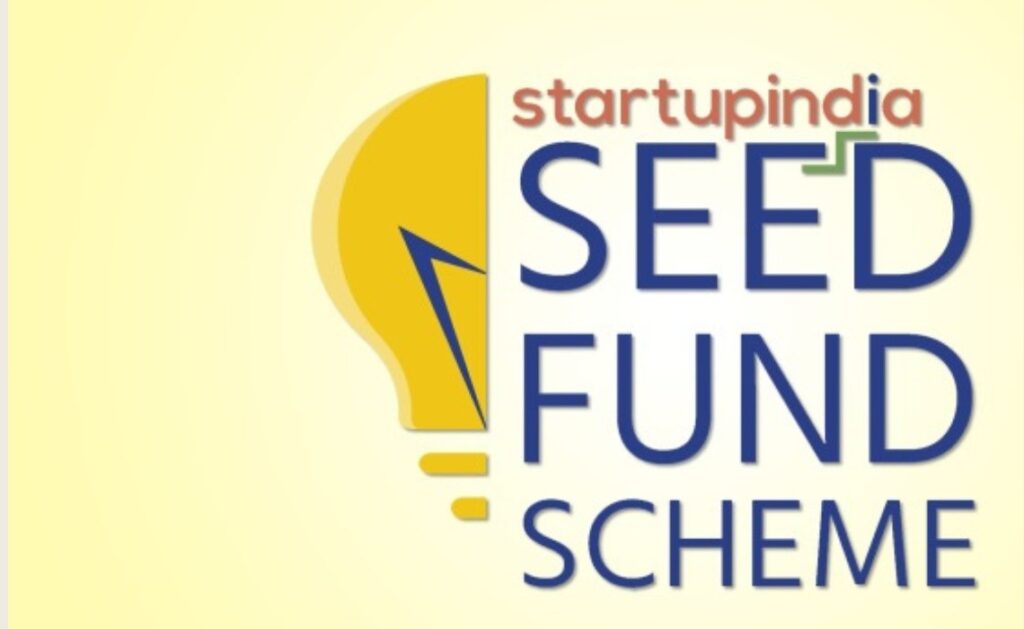
Source: Startup IndiaSeed Fund Scheme
Program Overview: The SEED Fund provides grants up to ₹20 lakh for proof of concept, prototype development, product trials, market-entry, and commercialization. This represents one of the most accessible government schemes grants Indian startups can access.
Eligibility Criteria from My Observations:
- Indian entity incorporated not more than 2 years ago
- Innovative business model with scalability potential
- Indian promoters holding minimum 51% equity
- Recognition under Startup India initiative
- Clear technology or process innovation component
Funding Structure:
- Validation of Proof of Concept: Up to ₹20 lakh
- Prototype Development: Up to ₹20 lakh
- Product Trials: Up to ₹20 lakh
- Market Entry: Up to ₹20 lakh
- Commercialization: Up to ₹20 lakh
Application Strategy Based on NITI Aayog Insights: Focus applications on clear problem-solution fit rather than ambitious market size projections. Evaluation committees prioritize genuine innovation and execution capability over theoretical potential.
2. NIDHI-PRAYAS: Technology Development Support
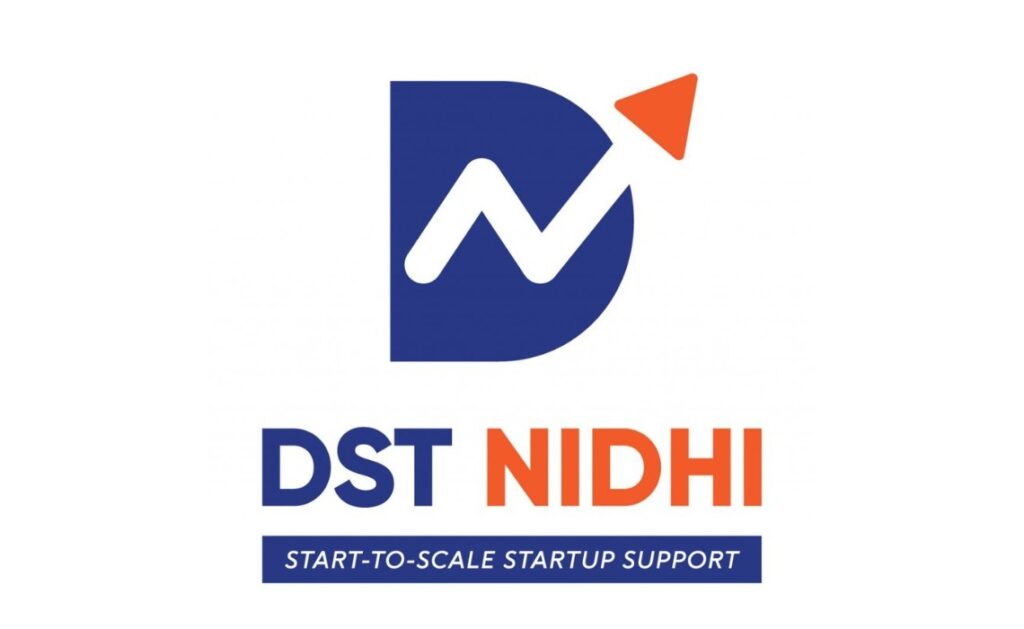
Program Structure: NIDHI-PRAYAS offers funding up to ₹10 lakh specifically for prototype development. This sector-agnostic program fosters indigenously developed innovations aligned with the Atmanirbhar Bharat mission.
Key Features I’ve Observed:
- Maximum support: ₹10 lakh per project
- Duration: 12 months with possible 6-month extension
- Focus on technology readiness level improvement
- Mentorship component included
- Intellectual property guidance provided
Target Sectors: All technology domains including biotechnology, electronics, energy, environment, materials, and information technology.
3. BIRAC Schemes: Biotechnology Innovation Support
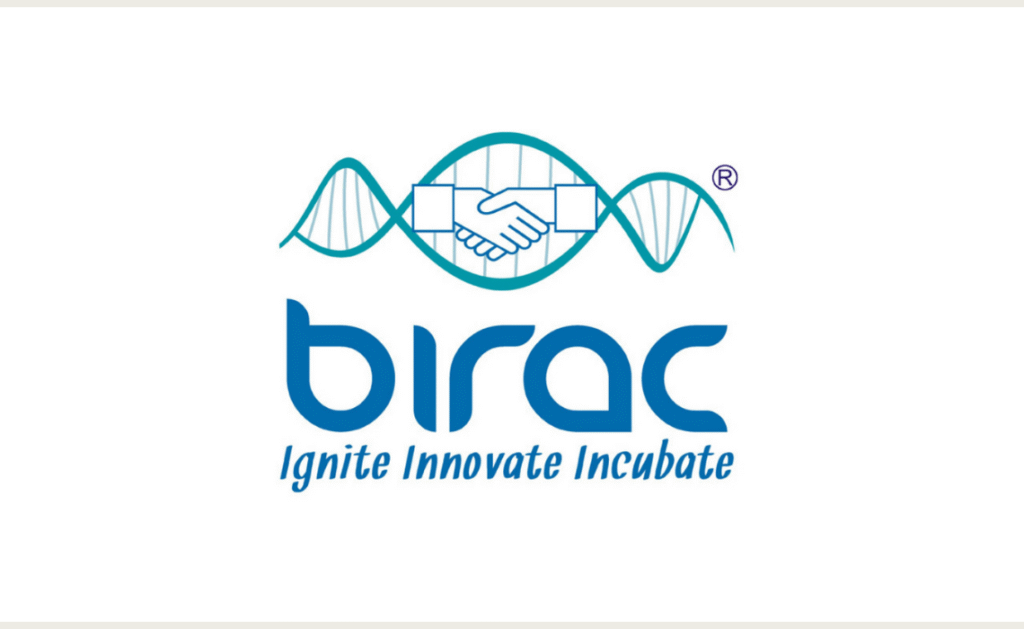
Source: Biotechnology Ignition Grant Scheme (BIG)
Through my mentoring work, I’ve seen numerous biotech startups benefit from Department of Biotechnology schemes administered through BIRAC (Biotechnology Industry Research Assistance Council).
Key BIRAC Programs:
BIG (Biotechnology Ignition Grant):
- Funding: Up to ₹50 lakh
- Duration: 18 months
- Focus: Early-stage biotech companies
- Convertible grant structure
SBIRI (Small Business Innovation Research Initiative):
- Phase I: Up to ₹25 lakh (12 months)
- Phase II: Up to ₹1 crore (24 months)
- Focus: Product development and commercialization
- Industry partnership encouraged
4. NSTEDB Programs: Science and Technology Entrepreneurship
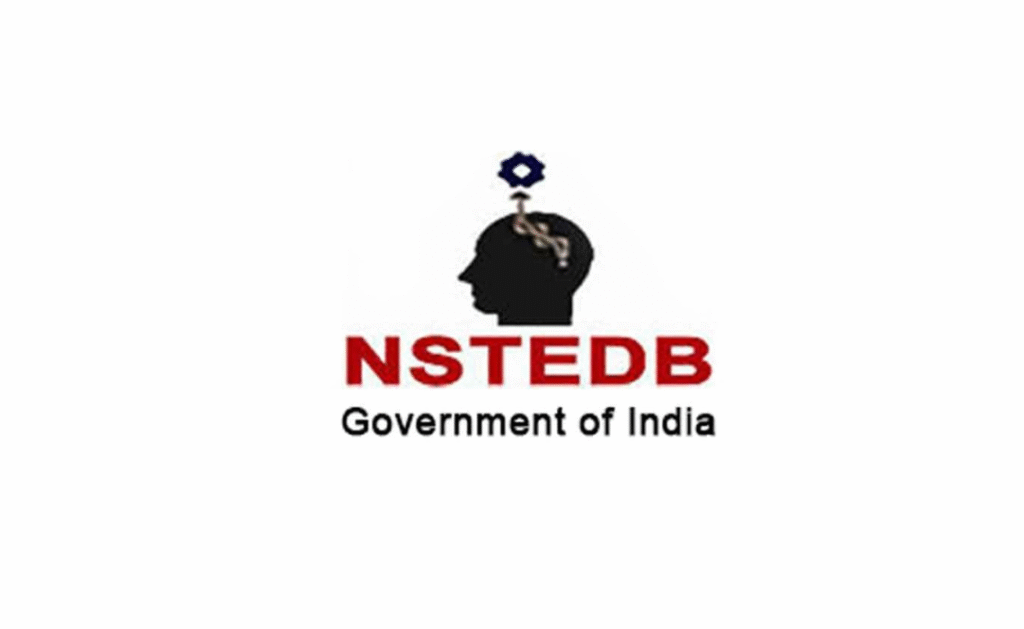
NSTEDB-Seed Support System:
- Grant support: Up to ₹25 lakh
- Focus: Technology-based startups
- Mentorship and incubation support
- Pre-incubation and incubation funding available
Target Areas: Information technology, biotechnology, nanotechnology, medical devices, and clean energy technologies.
5. MSME Schemes Applicable to Startups
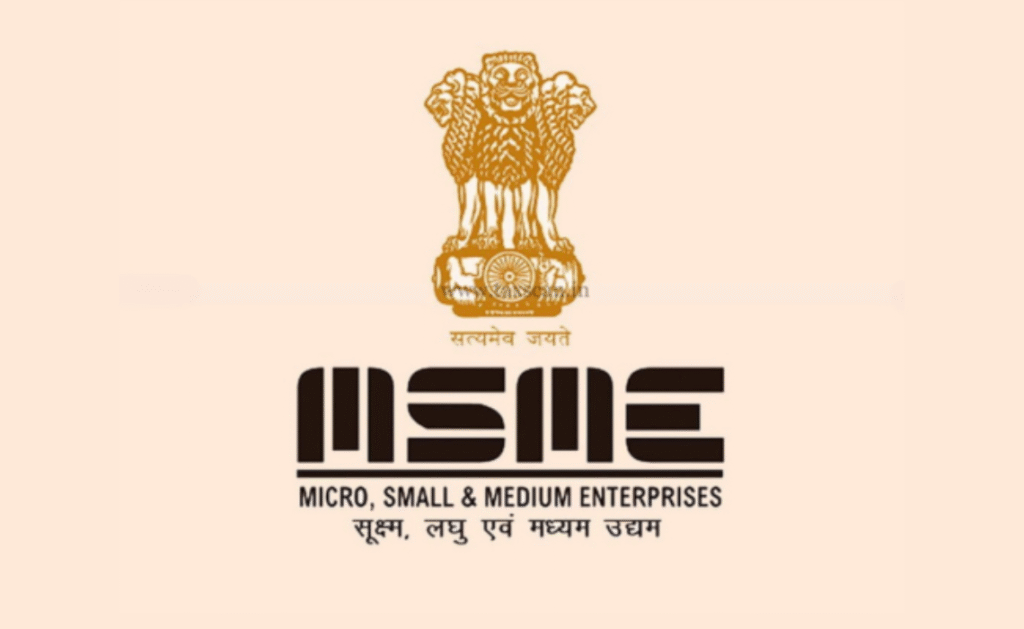
https://www.cgtmse.in/Source: Credit Guarantee Fund
Credit Guarantee Fund Scheme for Micro and Small Enterprises (CGTMSE):
- Collateral-free loans up to ₹2 crore
- 80% guarantee coverage for loans up to ₹1 crore
- Applicable to manufacturing and service sector startups
Technology Upgradation Fund Scheme (TUFS):
- Capital subsidy for technology adoption
- Interest reimbursement on loans
- Particularly beneficial for manufacturing startups
State Government Schemes Grants Indian Startups: Regional Opportunities
Karnataka State Programs
Karnataka Startup Cell Initiatives:
- Elevate 100: Grants up to ₹50 lakh for product development
- Startup Validation and Testing: Support for proof of concept
- Women Entrepreneur Grants: Additional funding for women-led startups
Maharashtra Startup Ecosystem
Maharashtra State Innovation Society Programs:
- Avishkar: Research and development grants
- Maharashtra Startup Week: Networking and funding opportunities
- MSIDC Industrial Promotion: Infrastructure and funding support
Tamil Nadu Startup Support
TIDEL Park Initiatives:
- Tamil Nadu Startup and Innovation Policy: Comprehensive ecosystem support
- Atal Incubation Centres: Funding and mentorship programs
- EDII Chennai Programs: Entrepreneurship development support
Telangana State Programs
T-Hub and T-Works Initiatives:
- Emerging Technology Funds: AI, IoT, and blockchain startups
- Social Impact Grants: Startups addressing social challenges
- International Market Entry Support: Export promotion assistance
Gujarat Startup Ecosystem
iCreate and Gujarat Startup Support:
- Gujarat Startup Policy: Comprehensive state-level support
- Incubation Grants: Up to ₹25 lakh for selected startups
- Rural Innovation Support: Programs for rural entrepreneurs
Sector-Specific Government Schemes Grants Indian Startups
Agriculture and Food Processing
Ministry of Food Processing Industries (MoFPI) Schemes:
- PMKSY-PFMC: Grants for food processing startups
- Operation Greens: Support for agriculture value chain startups
- Cold Chain Development: Infrastructure support grants
Defense and Aerospace
Defence Innovation Fund:
- Innovations for Defence Excellence (iDEX): Grants and contracts
- Technology Development Fund: R&D support for defense technologies
- Defence Procurement Procedures: Government contract opportunities
Healthcare and Medical Devices
Department of Pharmaceuticals Schemes:
- Medical Device Parks: Infrastructure development support
- Pharmaceutical Promotion Council Grants: R&D funding
- Ayushman Bharat Digital Mission: Digital health innovation support
Clean Energy and Environment
Ministry of New and Renewable Energy Programs:
- National Solar Mission Grants: Solar technology startups
- Wind Energy Development: Renewable energy innovation support
- Energy Storage System Development: Battery and storage technology funding
Application Strategies: Insights from NITI Aayog Mentoring
Documentation Excellence
Essential Documents for Government Schemes Grants Indian Startups:
- Startup India recognition certificate
- Detailed project report with clear milestones
- Financial projections with realistic assumptions
- Technical feasibility analysis
- Market research and competitive analysis
- Intellectual property documentation
- Team credentials and relevant experience
- Letters of intent from potential customers
Timeline Management
Application Process Optimization:
- Research Phase: 2-3 weeks for scheme identification and eligibility verification
- Documentation: 3-4 weeks for comprehensive application preparation
- Submission: Allow 1-2 weeks for application portal navigation and submission
- Follow-up: Regular tracking through designated portals and nodal officers
Common Application Mistakes
From my mentoring experience, I’ve observed these frequent errors:
Technical Mistakes:
- Incomplete or incorrect documentation
- Unrealistic financial projections
- Weak technical feasibility demonstrations
- Insufficient market research data
Strategic Errors:
- Applying for schemes without proper eligibility verification
- Focusing on funding amount rather than scheme alignment
- Neglecting intellectual property considerations
- Inadequate team and credential presentation
Maximizing Success: Advanced Strategies
Portfolio Approach to Government Schemes Grants Indian Startups
Multi-Scheme Strategy: Apply to multiple compatible schemes simultaneously rather than focusing on a single program. This approach increases funding probability while diversifying risk.
Scheme Combination Examples:
- SEED Fund + State-specific grants
- BIRAC schemes + Academic institution partnerships
- MSME schemes + Export promotion benefits
- Incubator support + Direct government grants
Timing Optimization
Application Calendar Planning:
- Q1 (April-June): Major scheme announcements and fresh budget allocations
- Q2 (July-September): Peak application period with highest success rates
- Q3 (October-December): Mid-year scheme reviews and additional allocations
- Q4 (January-March): Final evaluations and next-year planning
Networking and Mentorship Leverage
Ecosystem Engagement:
- Participate in government-organized startup events and competitions
- Engage with recognized incubators and accelerators
- Build relationships with successful scheme beneficiaries
- Maintain regular communication with scheme administrators
Regional Insights: State-Wise Opportunities
Northern States Focus
Delhi National Capital Region:
- High concentration of central government schemes
- Strong incubation infrastructure
- Access to policy makers and government departments
- Competitive application environment requiring excellence
Punjab and Haryana:
- Agriculture and food processing focus
- Lower competition compared to metro areas
- State government support for first-generation entrepreneurs
- Integration with rural development programs
Southern States Advantages
Bangalore-Chennai Corridor:
- Technology sector specialization
- Strong industry-government partnerships
- Mature incubation ecosystem
- International market access support
Hyderabad Innovation Hub:
- Government-industry collaboration models
- Emerging technology focus areas
- Pharmaceutical and biotech advantages
- Export-oriented scheme benefits
Western Region Opportunities
Mumbai-Pune Belt:
- Financial sector innovation support
- Manufacturing startup encouragement
- Port connectivity for export businesses
- Established entrepreneurship ecosystem
Gujarat Innovation Model:
- Business-friendly policy environment
- Chemical and pharmaceutical industry integration
- Rural entrepreneurship development
- International trade facilitation
Eastern Region Potential
Kolkata and Bhubaneswar:
- Lower competition for government schemes grants Indian startups
- Emerging IT and services sector support
- Coal and mineral sector technology opportunities
- Cultural and creative industry support
Compliance and Reporting: Ensuring Long-term Success
Grant Utilization Best Practices
Financial Management:
- Maintain separate accounts for grant funds
- Detailed expense tracking and documentation
- Regular financial reporting to scheme administrators
- Audit-ready documentation maintenance
Milestone Achievement:
- Clear milestone definition and tracking
- Regular progress reporting
- Proactive communication about challenges
- Flexibility in milestone modification when necessary
Intellectual Property Considerations
IP Strategy for Government-Funded Innovation:
- Understand IP ownership clauses in grant agreements
- File patents and trademarks appropriately
- Maintain confidentiality during application processes
- Plan for commercialization rights and revenue sharing
Scaling Beyond Initial Grants
Follow-up Funding Pathways:
- Graduation to larger government schemes
- Private investor introduction through government networks
- Export promotion scheme benefits
- Industry-specific advanced programs
Measuring Impact: Success Metrics and Evaluation
Quantitative Success Indicators
Financial Metrics:
- Grant utilization efficiency ratios
- Revenue generated per rupee of grant received
- Job creation numbers and sustainability
- Export revenue contribution
- Tax contribution to government
Operational Metrics:
- Product development timeline adherence
- Market penetration achievements
- Customer acquisition costs and lifetime value
- Technology readiness level improvements
- Intellectual property creation and monetization
Qualitative Impact Assessment
Ecosystem Contribution:
- Knowledge sharing and mentoring provided to other startups
- Industry partnership development
- Innovation ecosystem participation
- Policy feedback and improvement suggestions
- Success story documentation and sharing
Future Outlook: Emerging Trends in Government Schemes Grants Indian Startups
Technology Focus Evolution
Emerging Priority Areas:
- Artificial intelligence and machine learning applications
- Climate technology and sustainability solutions
- Digital health and telemedicine platforms
- Fintech and blockchain innovations
- Space technology and satellite applications
Government Investment Trends:
- Increased allocation for deep technology research
- International collaboration opportunities
- Public-private partnership models
- Regional balance in funding distribution
- Women and minority entrepreneur focus
Policy Integration Opportunities
Cross-Ministry Collaboration:
- Multi-department scheme coordination
- Simplified application processes
- Unified startup registration and benefits
- Real-time tracking and evaluation systems
- Performance-based incentive structures
Your Action Plan: Navigating Government Schemes Grants Indian Startups
Phase 1: Assessment and Preparation (Weeks 1-4)
Startup Readiness Evaluation:
- Verify Startup India recognition eligibility and process
- Conduct comprehensive scheme mapping for your sector
- Prepare foundational documents and financial projections
- Identify compatible schemes for portfolio approach application
Phase 2: Application Development (Weeks 5-8)
Strategic Application Creation:
- Develop detailed project reports for priority schemes
- Create compelling presentations highlighting innovation and impact
- Prepare financial models with realistic assumptions and milestones
- Gather letters of support from customers, mentors, and industry experts
Phase 3: Submission and Follow-up (Weeks 9-12)
Application Management:
- Submit applications with meticulous attention to requirements
- Maintain regular follow-up with scheme administrators
- Prepare for presentation and evaluation processes
- Build relationships within the government startup ecosystem
Long-term Success Strategy
Sustainable Growth Planning:
- Plan for graduation from government support to market-driven growth
- Build capabilities for private investor engagement
- Develop export and international expansion strategies
- Contribute back to the startup ecosystem through mentoring and knowledge sharing
Government schemes grants Indian startups represent one of the most underutilized growth accelerators in India’s entrepreneurship landscape. Through my NITI Aayog mentoring experience, I’ve seen firsthand how strategic engagement with these programs can transform promising startups into sustainable businesses while contributing to India’s innovation ecosystem.
The key to success lies not just in accessing these funds, but in viewing them as stepping stones toward building world-class companies that can compete globally while remaining rooted in Indian innovation capabilities. Your startup’s journey with government schemes grants Indian startups begins with the first application you submit today.
FAQ
Q: Which government schemes grants Indian startups offer the highest funding amounts?
A: The largest grants come from sector-specific programs like BIRAC’s SBIRI (up to ₹1 crore), followed by Startup India SEED Fund (up to ₹20 lakh per stage). However, success depends more on scheme alignment with your startup’s needs than absolute funding amounts.
Q: How long does it typically take to receive funding after applying for government schemes grants Indian startups?
A: Processing times vary by scheme, typically ranging from 3-9 months. SEED Fund applications average 4-6 months, while specialized schemes like BIRAC may take 6-9 months due to extensive technical evaluation processes.
Q: Can startups apply for multiple government schemes grants Indian startups simultaneously?
A: Yes, startups can apply to multiple compatible schemes simultaneously. In fact, I recommend a portfolio approach where you target 3-4 relevant schemes to maximize your chances of success while diversifying funding sources.
Q: What are the most common reasons applications for government schemes grants Indian startups get rejected?
A: Based on my mentoring experience, the top rejection reasons include incomplete documentation, unrealistic financial projections, weak technical feasibility demonstration, and poor alignment between the startup’s business model and the scheme’s objectives.
Q: Do government schemes grants Indian startups require equity dilution or repayment?
A: Most government grants are non-dilutive and don’t require repayment if milestones are achieved. However, some schemes like BIRAC’s BIG offer convertible grants that may convert to equity under specific circumstances. Always review terms carefully.
Q: How can startups in Tier-2 and Tier-3 cities access government schemes grants Indian startups effectively?
A: Smaller cities often have advantages including lower competition and specific regional development incentives. Partner with local incubators, utilize state-specific schemes, and leverage digital application processes that eliminate geographical barriers.
Q: What role do incubators play in accessing government schemes grants Indian startups?
A: Recognized incubators serve as intermediaries for many schemes, providing application support, mentorship, and higher approval rates. They also offer additional benefits like infrastructure access and networking opportunities that complement government funding.
Q: Are there specific government schemes grants Indian startups focused on women entrepreneurs?
A: Yes, several schemes offer additional benefits for women-led startups, including Karnataka’s Women Entrepreneur Grants, enhanced MUDRA loan limits, and priority consideration in various central schemes. Women entrepreneurs should actively pursue these opportunities.




